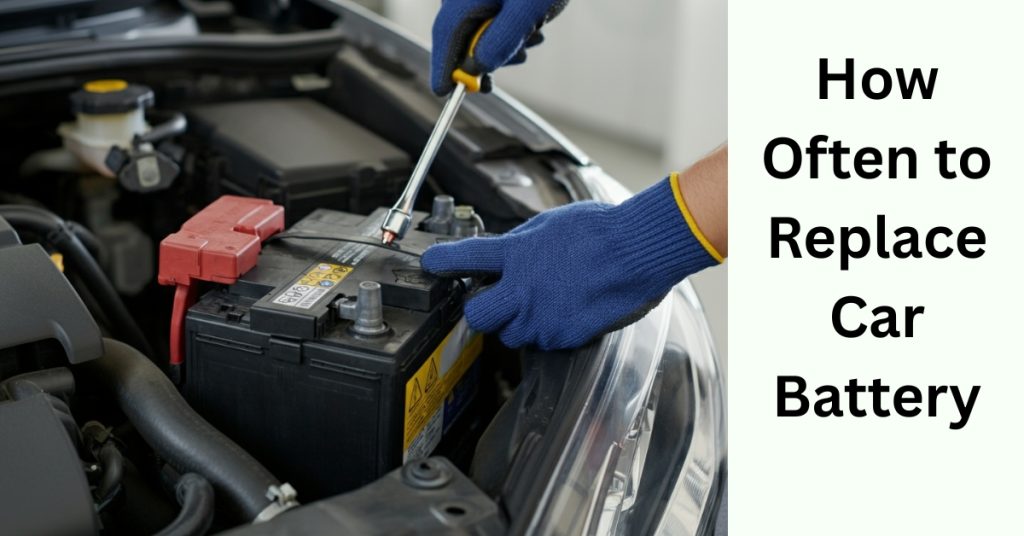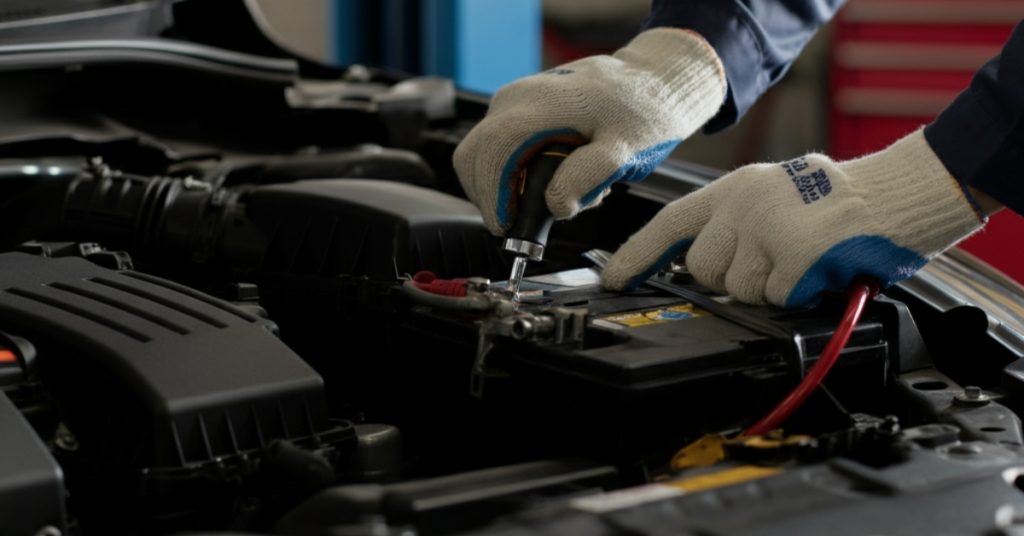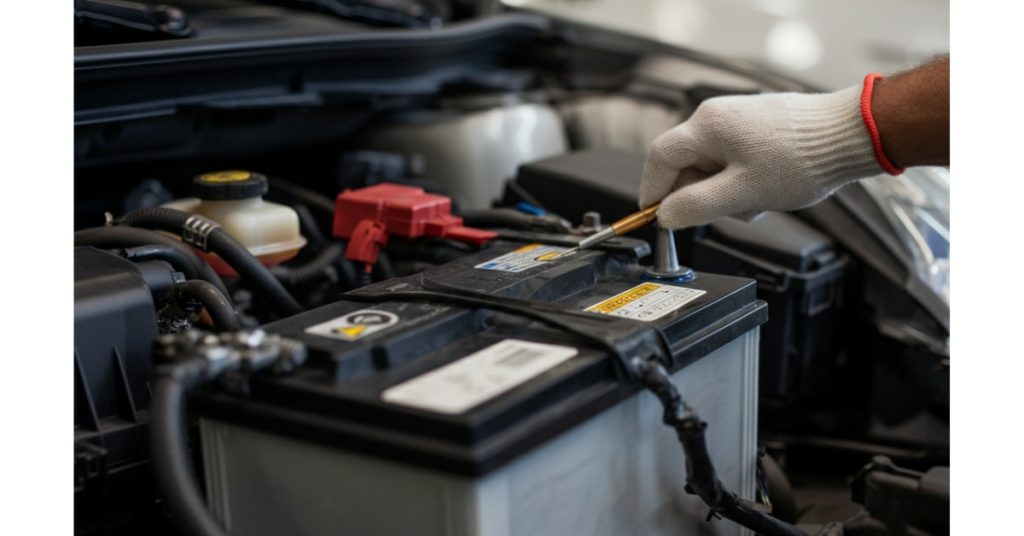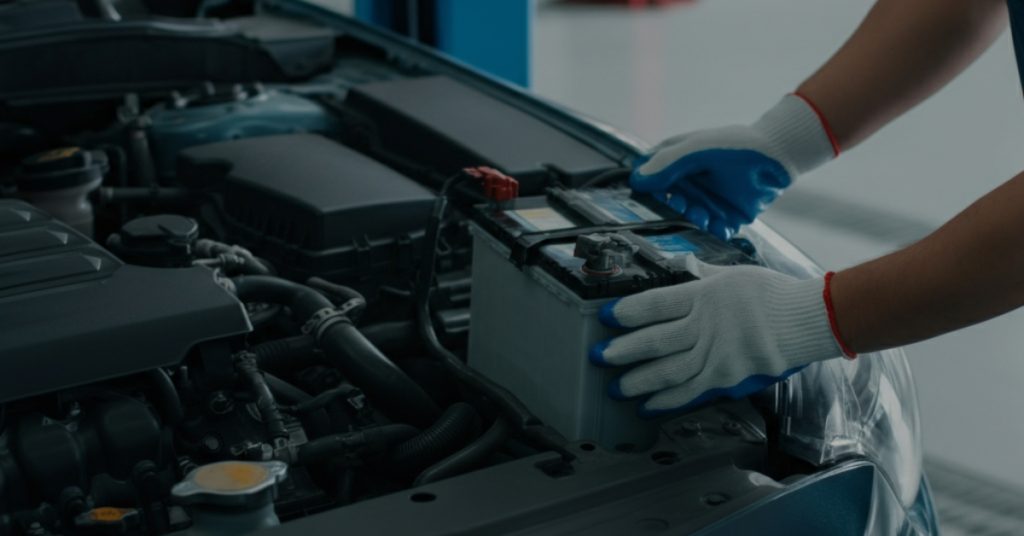- As an Amazon Associate, I earn from qualifying purchases.

Car batteries might not be the stars of automotive technology, but they are the silent workhorses that power your vehicle’s electrical systems and bring your engine to life. From keeping your headlights bright to ensuring your engine cranks up smoothly, the humble car battery plays an essential role.
Understanding when to replace your car battery is not just a matter of convenience; it’s a crucial step in avoiding unexpected breakdowns and ensuring your vehicle runs reliably. But how often should you replace a car battery? And what signs should you look out for? This guide will answer your questions and provide actionable insights to keep your car running at its best.
Contents
Why It’s Important to Replace Car Batteries on Time
Replacing your car battery on time is critical for a variety of reasons. Here’s why:

1. Prevents Unexpected Breakdowns
Few things are more frustrating than being stranded in a parking lot or on the side of the road due to a dead battery. Replacing your battery at the right time helps you avoid such situations and ensures you’re never late for important meetings or events.
2. Ensures Smooth Engine Start-ups
Modern vehicles rely heavily on the battery to start the engine, even more so in extreme weather conditions. A healthy battery ensures your car starts effortlessly, whether it’s a scorching summer afternoon or a freezing winter morning.
3. Protects Your Vehicle’s Electrical Components
A weak or failing battery can cause voltage fluctuations, which may damage sensitive electrical systems like your car’s onboard computer, stereo, or navigation systems. By replacing the battery on time, you protect these expensive components.
How Often to Replace a Car Battery (Step-by-Step Guide)
The general lifespan of a car battery is about three to five years, but it can vary based on several factors. Here’s a detailed guide to help you figure out the best time for a car battery replacement:
1. Understand the Average Lifespan
Most car batteries are designed to last between 3–5 years. After three years, it’s a good idea to start paying close attention to your battery’s performance.
2. Consider Climate
Extreme temperatures, whether hot or cold, can shorten the life of your battery. Heat causes battery fluid to evaporate faster, while cold weather increases the workload on your battery. If you live in a climate with harsh weather, you may need to replace the battery sooner.
3. Monitor Driving Habits
Frequent short trips prevent the battery from fully recharging, leading to faster wear and tear. If you primarily use your car for short commutes, keep a closer eye on your battery’s health.
4. Schedule Regular Battery Checks
Most auto service centers offer quick battery health tests. Voltage tests and visual inspections can help you spot early signs of wear, like corrosion or low charge.
5. Replace Proactively
Don’t wait for your battery to fail completely or leave you stranded. Aim to replace it as soon as you notice signs of deterioration or if it’s nearing the 5-year mark.
Best Places to Replace Your Car Battery

Replacing a car battery is a straightforward process, and you have several options for where to get it done:
1. Auto Parts Stores
Many auto parts retailers, such as AutoZone or Advance Auto Parts, offer free battery installation with a purchase. It’s a convenient and budget-friendly option.
2. Dealerships
If you prefer OEM (Original Equipment Manufacturer) parts and trusted service, your dealership is an excellent option. While it may cost more, it ensures compatibility and quality.
3. Local Mechanics or Service Centers
Local garages often provide competitive pricing and personalized service. They’re also a great option for follow-up checks.
4. Mobile Battery Replacement Services
For ultimate convenience, mobile services like AAA or YourMechanic can come to your home or workplace to replace your car battery on the spot.
Signs Your Car Battery Needs Replacement

It’s essential to recognize the warning signs of a dying battery before it completely fails. Keep an eye out for these indicators:
1. Slow Engine Crank
If it takes longer than usual for your engine to start, your battery may be struggling to provide enough power.
2. Dashboard Battery Warning Light
Most modern vehicles have a battery warning light on the dashboard. If this light turns on, it’s time to get your battery checked.
3. Electrical Issues
Dim headlights, malfunctioning power windows, or unresponsive infotainment systems often signal battery problems.
4. Swollen or Corroded Battery Case
If your battery looks swollen or has corrosion around the terminals, it’s time for a replacement.
5. Frequent Jump-Starts
If you’re reaching for jumper cables regularly, your battery is nearing the end of its life.
While replacing your battery is inevitable, there are ways to extend its lifespan:
- Drive Regularly: Give your car a long drive periodically to recharge the battery fully.
- Keep Terminals Clean: Battery terminals can corrode over time; cleaning them with a baking soda solution can help maintain a good connection.
- Limit Parasitic Drains: Ensure devices like phone chargers or lights are not left on while the engine is off.
While you’re getting your car’s battery checked, it’s also a good time to schedule a car alignment check for your vehicle. Here’s a guide on how long a car alignment takes, so you can plan accordingly.
FAQs About How Often to Replace a Car Battery
What is the average lifespan of a car battery?
Most car batteries last between 3 to 5 years, depending on usage and environmental factors.
Can a car battery last 7 years?
While uncommon, some high-quality batteries can last up to 7 years with perfect conditions and proper care.
How do I know if my car battery is dying?
Look out for slow engine cranking, dashboard warning lights, or frequent jump-starts.
Should I replace the battery before winter?
Yes, it’s wise to replace an old battery before winter, as cold weather places extra stress on it.
Does idling the car charge the battery enough?
No, idling is not an efficient way to recharge your battery. A 15–30 minute drive is more effective.
Keep Your Vehicle Powered and Reliable
Replacing your car battery on time isn’t just about avoiding inconvenience; it’s about keeping your car reliable and safe. With an average lifespan of 3–5 years, regular battery checks and timely replacements can save you from stressful breakdowns.
Ready to take the next step in car maintenance? Schedule a battery health check today to keep your vehicle in top shape.
- As an Amazon Associate, I earn from qualifying purchases.


